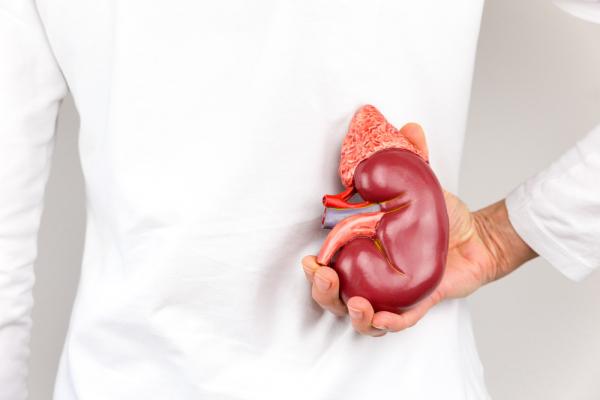Did you know that March is National Kidney Month? Well, you're not alone because I wasn't aware of it either until just recently.
But every so often, for overall fitness and health, it does make sense to check in with your bean-shaped organs to see how they're doing – and more importantly, to learn whether you're taking proper care of them. Millions of U.S. adults are not, and they're unaware of the damage they're doing because it can be symptomless.
I haven't thought about my kidneys in ... uh, forever ... so now seemed like as good a time as any to brush up on ways to keep them working well. (Maybe it might help you, too.)
Since your kidneys are in charge of many important tasks – including cleaning the blood supply and producing urine – being aware of what they do and what can potentially go wrong is important.
"Kidneys filter 200 liters of blood a day, help regulate blood pressure and direct red blood cell production," states the National Kidney Foundation. "But they are also prone to disease; 1 in 3 Americans is at risk for kidney disease due to diabetes, high blood pressure or a family history of kidney failure. There are more than 26 million Americans who already have kidney disease, and most don’t know it because there are often no symptoms until the disease has progressed."
Therefore, because trouble can start before you're aware it's occurring, it's smart to protect your kidneys and aid their vital processes, as listed here by the NKF:
 One of the best things you can do is drink water, a significant amount on a daily basis, to prevent stones from forming. Kidney stones (as shown in the image below, courtesy: Shutterstock) form when there's a high mineral and salt count, and those formations can then block the flow of urine from the organ.
One of the best things you can do is drink water, a significant amount on a daily basis, to prevent stones from forming. Kidney stones (as shown in the image below, courtesy: Shutterstock) form when there's a high mineral and salt count, and those formations can then block the flow of urine from the organ.
We all know how painful these blockages can be. But many who have had them say that despite what they knew, you can't believe how horrendous the pain is until you've lived through the experience – which, of course, you hope to avoid. Some kidney stones veterans describe the sensation as having miniature razor blades gouging your insides. That said, do yourself a favor and get on the right path by drinking plenty of water, to avoid being the 1 in 10 Americans stricken by this condition.
 There are other things you can do to support good kidney health. Avoid drinking too much of tea or coffee, and halt excessive consumption of nuts and chocolate. (Those foods don't pose a problem if eaten in moderation; just don't overdo them.) And watch your intake of salt and caffeine, especially if you suffer from high blood pressure.
There are other things you can do to support good kidney health. Avoid drinking too much of tea or coffee, and halt excessive consumption of nuts and chocolate. (Those foods don't pose a problem if eaten in moderation; just don't overdo them.) And watch your intake of salt and caffeine, especially if you suffer from high blood pressure.
Other smart decisions include limiting one's intake of sugar-sweetened drinks and alcohol, and eating fruit and vegetables on a regular basis.
These steps can help you avoid developing kidney disease, which in the ninth leading cause of death in the United States.
And according to the National Kidney Foundation, it's also essential to limit stress in your life. Stress, the NKF states, "can contribute to health problems, including high blood pressure, diabetes and heart disease, and place you at increased risk for kidney disease. ... While it is very difficult to completely get rid of stress, here are 10 ways to reduce stress, protect your kidneys and maintain your overall health."
- 1. Eat healthier foods
- 2. Limit salt and caffeine
- 3. Set aside time to relax
- 4. Exercise regularly
- 5. Reduce the amount of sugar and fat in your diet
- 6. Maintain a positive attitude and outlook
- 7. Get plenty of sleep
- 8. Don’t keep your feelings inside.
- 9. Set goals and expectations
- 10. Listen to music
A brief description of each of these suggestions is available here.




